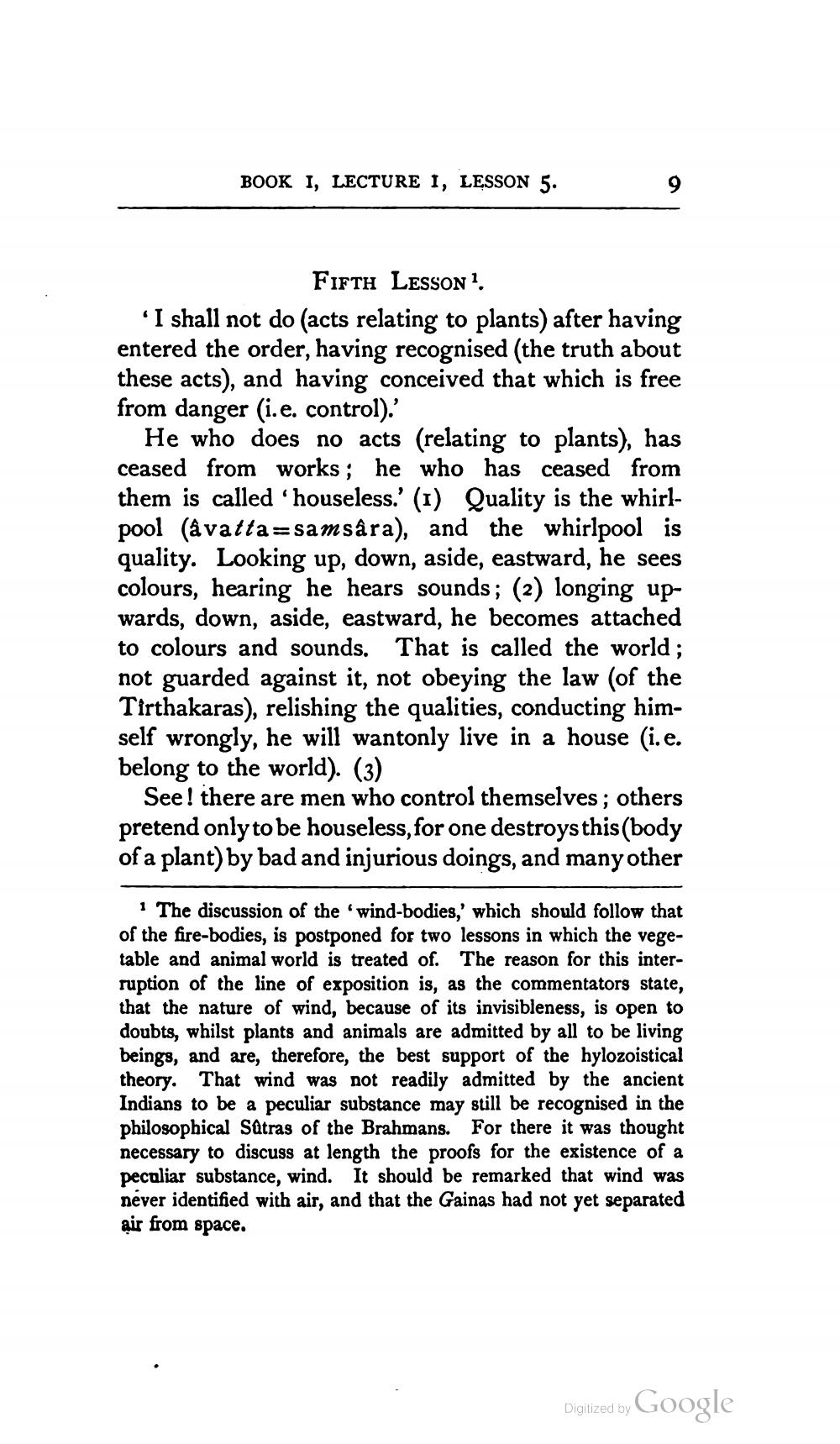________________
BOOK I, LECTURE I, LESSON 5.
FIFTH LESSON "I shall not do (acts relating to plants) after having entered the order, having recognised (the truth about these acts), and having conceived that which is free from danger (i.e. control).
He who does no acts (relating to plants), has ceased from works; he who has ceased from them is called 'houseless.' (1) Quality is the whirlpool (avatta=samsara), and the whirlpool is quality. Looking up, down, aside, eastward, he sees colours, hearing he hears sounds; (2) longing upwards, down, aside, eastward, he becomes attached to colours and sounds. That is called the world; not guarded against it, not obeying the law (of the Tirthakaras), relishing the qualities, conducting himself wrongly, he will wantonly live in a house (i.e. belong to the world). (3)
See! there are men who control themselves; others pretend only to be houseless, for one destroys this(body of a plant) by bad and injurious doings, and many other
1 The discussion of the 'wind-bodies,' which should follow that of the fire-bodies, is postponed for two lessons in which the vegetable and animal world is treated of. The reason for this interruption of the line of exposition is, as the commentators state, that the nature of wind, because of its invisibleness, is open to doubts, whilst plants and animals are admitted by all to be living beings, and are, therefore, the best support of the hylozoistical theory. That wind was not readily admitted by the ancient Indians to be a peculiar substance may still be recognised in the philosophical Satras of the Brahmans. For there it was thought necessary to discuss at length the proofs for the existence of a peculiar substance, wind. It should be remarked that wind was never identified with air, and that the Gainas had not yet separated air from space.
Digitized by Google




